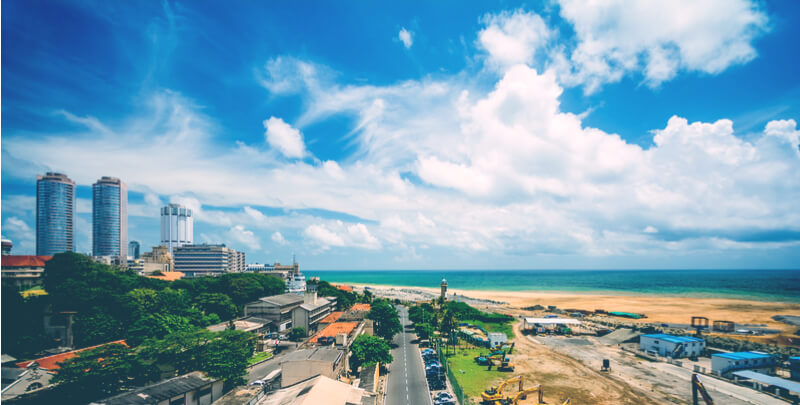Tanzania Corporate Tax - Guide for International Expansion
Learn about the corporate tax system in Tanzania, its current rates, how to pay your dues and stay compliant, and best practices.

If you’re thinking about starting a business in Sri Lanka, you’d be wise to arrive with a plan and a bit of capital. The World Bank ranks the country 109th out of 189 countries on its ‘Ease of Doing Business’ index. However, Sri Lanka has seen the emergence of more startups within the past decade. The government has made efforts to encourage trade and entrepreneurship.
While setting up a company involves minor administrative hurdles, the process is quick and straightforward. Registration is best done in-person, not online. Here are some important tips for the potential entrepreneur in Sri Lanka.
There are several types of business structures in Sri Lanka. These are:
The structure of a sole proprietorship is similar in most countries. When you register as a sole trader, you’re taxed at a personal income rate. You’re responsible for all company obligations. This is the easiest and quickest business to set up. As a sole trader, you’ll still be able to employ other individuals.
A registered partnership is similar to a sole proprietorship, but the ownership is shared. From a legal and tax perspective, all partners share the obligations of the company. Partnerships aren’t taxed as separate legal entities, so partners are subject to personal income rates.
The limited liability company is the most common type of business in Sri Lanka. It requires one director and two shareholders. Minimum share capital isn’t required. The company secretary must be an individual who resides in Sri Lanka.
A public limited company doesn’t require minimum share capital, either. This type of business is required to have two shareholders and two directors. Directors are required to file annual returns, along with audited accounts and financial statements. Shares are allowed to be issued on the stock exchange.
An overseas company can be foreign-owned and can serve as a branch. This type of company’s operations are defined by the parent company. The company must register with the Treasury and is subject to a 10% branch tax on profits.
An offshore company can conduct business outside of Sri Lanka. However, it cannot conduct business within the country, but will still be registered there.
The process for registering a company in Sri Lanka is straightforward. On average, the entire process takes about ten days from start to finish.
Here are the steps:
As this is all best done in person, and you’ll need to pay your fees on the way, it’ll help to get a bank account set up in Sri Lanka. And if you need to send money to your new Sri Lankan account, you’ll get the best deal with Wise.
With Wise, you’ll get the exchange rate you see on Google, and a transparent, up-front fee for your transfer so you know exactly how many Rupees you’ll be getting.
The Sri Lankan Department of Inland Revenue lays out the tax structure required for individuals, partnerships and companies. Depending on your situation, you may be entitled to tax-free allowance in Sri Lanka, provided that your income is under a certain amount.
The Institute of Chartered Accountants in Sri Lanka created a code of corporate governance with respect to all company financial procedures. Within the code, they suggested that companies should develop a transparent policy on executive and director compensation. Corporate governance standards are now mandatory for all listed companies and they must cover training, compliance reporting and board structure.
According to Sri Lankan labour law, an employee is entitled to 14 days of paid annual leave after serving 12 months continuously at the company. Workers are entitled to one and a half days off per week, as well as pay on all public and religious holidays. They are also entitled to half a month’s salary for each completed year of service after five or more years in the event of a termination. Maternity leave is 12 weeks in Sri Lanka.
There’s no pension scheme for private sector employees in Sri Lanka. However, companies must pay gratuities to employees after five years in companies of 15 people or more.
There are many public bureaus, private companies and documentation available to assist entrepreneurs in Sri Lanka. There’s also a robust entrepreneur community within the country. Here are some of your options:
Now you’re at a great starting point to make sure your Sri Lankan business is a roaring success.
Disclaimer: The UK Wise Business pricing structure is changing with effect from 26/11/2025 date. Receiving money, direct debits and getting paid features are not available with the Essential Plan which you can open for free. Pay a one-time set up fee of £50 to unlock Advanced features including account details to receive payments in 22+ currencies or 8+ currencies for non-swift payments. You’ll also get access to our invoice generating tool, payment links, QuickPay QR codes and the ability to set up direct debits all within one account. Please check our website for the latest pricing information.
*Please see terms of use and product availability for your region or visit Wise fees and pricing for the most up to date pricing and fee information.
This publication is provided for general information purposes and does not constitute legal, tax or other professional advice from Wise Payments Limited or its subsidiaries and its affiliates, and it is not intended as a substitute for obtaining advice from a financial advisor or any other professional.
We make no representations, warranties or guarantees, whether expressed or implied, that the content in the publication is accurate, complete or up to date.

Learn about the corporate tax system in Tanzania, its current rates, how to pay your dues and stay compliant, and best practices.

Learn about the corporate tax system in Austria, its current rates, how to pay your dues and stay compliant, and best practices.

Learn about the corporate tax system in Botswana, its current rates, how to pay your dues and stay compliant, and best practices.

Learn about the corporate tax system in Chile, its current rates, how to pay your dues and stay compliant, and best practices.

Learn about the corporate tax system in Montenegro, its current rates, how to pay your dues and stay compliant, and best practices.

Learn about the corporate tax system in Monaco, its current rates, how to pay your dues and stay compliant, and best practices